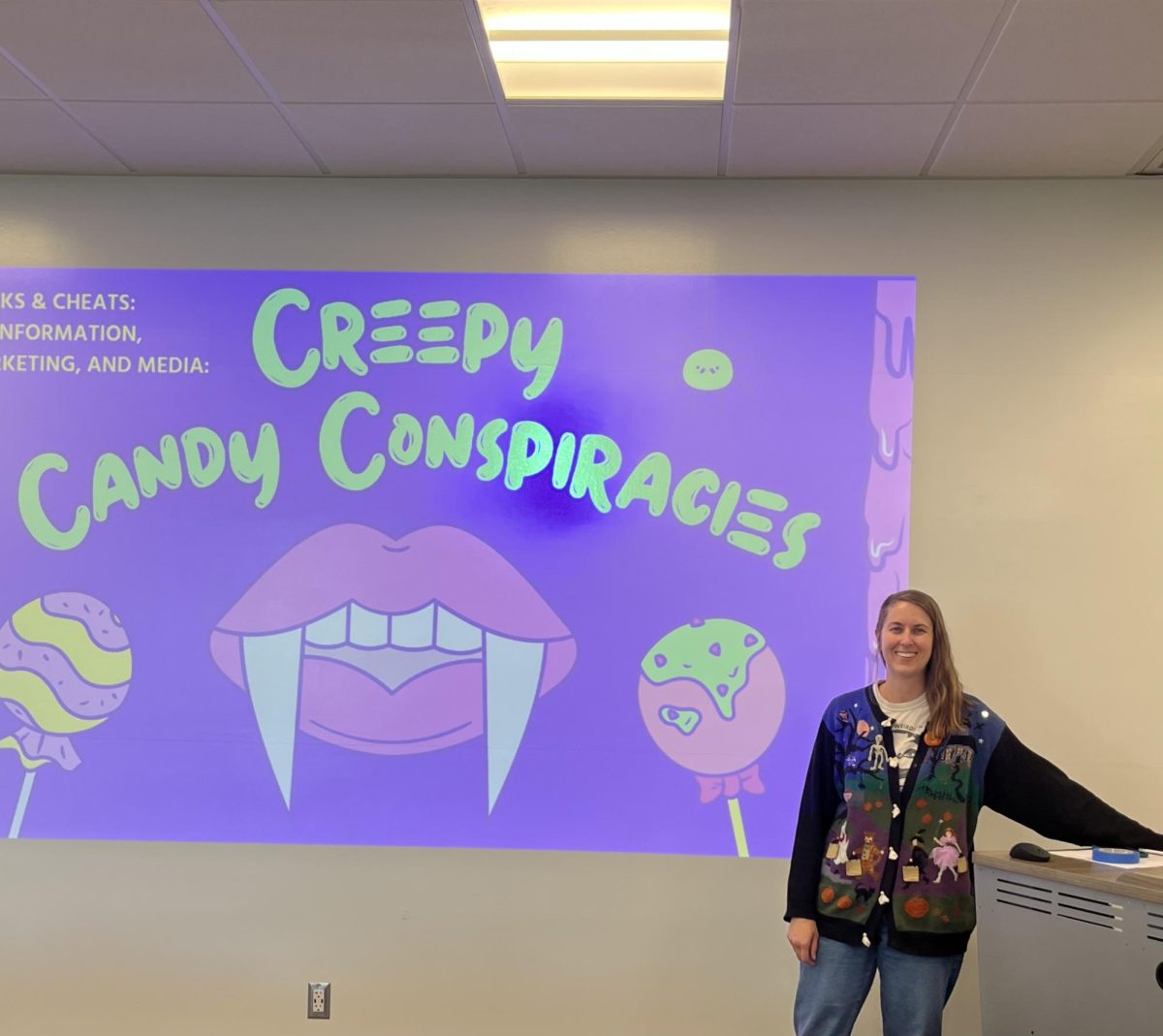A workshop about the conspiracy of poisonous Halloween candy and how it can affect our communities was hosted by reference librarian, Ariel Dyer.
Dyer expressed her interest in media literacy which led her to research the history of Halloween and the candy being potentially dangerous to Trick-or-Treaters.
Halloween is a celebration that’s roots go back to a Celtic holiday called Samhain roughly 2,500 years ago. It is a tradition that honors the souls that have passed on and was adopted into Western culture by Pope Gregory II implemented All Saints Day on Nov. 1 and All Souls Day on Nov. 2.
Dyer stated that the tradition of trick-or treating comes from poor families who would show up on the doorstep of wealthy families and ask for treats in exchange for prayers for their dead loved ones.
She spoke about modern day Halloween and children receiving candy from houses in their neighborhood. The tradition was seen as harmless, that was until an incident in 1959. A dentist, Dr. William Shyne, gave out laxatives coated in candy to children on Halloween. It was reported that 30 children fell victim to this cruel joke. This single incident led to a sudden uproar in fear and made for one humiliating criminal trial.
Several other articles written over the years have been linked to this conspiracy. which include one in 1970 where a 5-year-old allegedly died from Halloween candy but, in reality, died from consuming drugs left from a family member’s belongings.
Today, the fear of “poisoned candy” has seemed to only get worse. Dyer discussed several incidents in the past year involving Mexican drug cartels producing “rainbow fentanyl” which to the untrained eye, might look like colorful candy. She also emphasized that many news outlets instill fear into parents even though these incidents have no correlation to Halloween.
The workshop closed with a group discussion on how conspiracies like these may affect our experiences. Often it is friends or family who hear about “poisoned candy” or other conspiracies and end up fueling unnecessary anxiety. Ariel Dyer ended the discussion by stating “Ultimately this conspiracy undermines the sense of community.”





